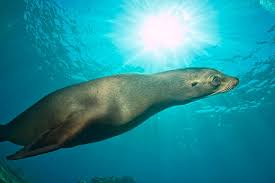By: Leaya Chen
Scientists don’t know much about most of the oceans around the world.
Recently, Nathan Angelakis, a Ph.D. student at the South Australian Research and Development Institute and the University of Adelaide, and colleagues called in eight female sea lions, four named Daphne, Phoebe, Iris, and Pasithea.
The eight female adult sea lions carried underwater small and light-weight cameras attached after a dose of sleeping drugs to track both speed and location and dove to parts of the ocean floor around Kangaroo Island and Olive Island in Australia.
After two to three days, they returned to the shore, and the researchers removed the devices and reviewed the footage.
Angelakis said the most exciting scene was captured by Daphne.
She was taking her pup out to sea, and that’s the first direct evidence that we’ve collected of Australian sea lion mothers teaching or passing on their foraging skills to their pups,” Angelakis said.
The footage they recorded was published in Frontiers in Marine Science. The sea lions’ footage is helping scientists understand ocean life around Australia, and it could lead to new discoveries.
The information gave scientists 89 hours of footage from the ocean floor, revealing six habitats covering 5,000 square km of seabed. This data could y help provide critical information to protect the endangered sea lions and be used to survey other marine species of interest.
Scientists say research like this is a critical step for protecting sea-floor habitats. Human activities and global warming are destroying the coral reefs, and scientists are trying to figure out how to save them. Using sea lions to map the ocean floors is important because it shows which habitats are most important to the predators.











